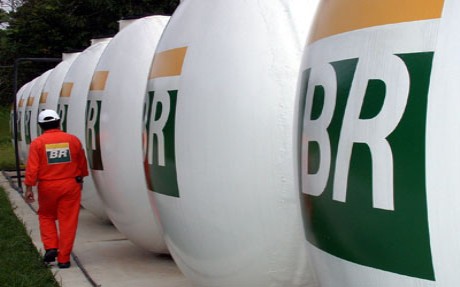Foreign companies aren’t quitting Brazil but instead are looking for partners to help finance the large investments needed to develop mammoth offshore oil fields, the head of Brazil’s government-run oil company, Petroleo Brasileiro (PBR), or Petrobras, said in an interview with the O Estado de Sao Paulo newspaper.
“If you look at what’s happening with BG, what happened with Repsol, and what’s happening with Galp, apparently they’re not leaving Brazil, nor are they selling their stakes in our blocks,” the report quoted Jose Sergio Gabrielli as saying.
A number of recent press reports have suggested that foreign companies were looking to sell Brazilian assets outright, but Gabrielli said they were in fact just looking for ways to help finance the investments.
The U.K.’s BG Group Plc is planning to sell stakes in some of its Brazilian assets as a way of strengthening its presence in Brazil.
“It is a strategy for reinforcing [their Brazil investments], much more than escaping,” Gabrielli said.
Late last year, Spain’s Repsol sold a 40% stake in its Brazilian operations to China Petrochemical Corp. (SNP), or Sinopec, for $3.76 billion, part of a series of asset sales made to finance the significant investments necessary to exploit the vast oil reserves it has found in Brazil.
Portugal’s Galp Energia, meanwhile, is looking to raise some EUR2 billion from the sale of between 15% and 20% of its Brazilian assets, and is using the Repsol/Sinopec deal as a point of reference. The company has said it expects to complete the deal by the third quarter, but isn’t in any hurry.
The Petrobras chief executive played down Petrobras’ ambitions with regards to those Galp assets.
“We have not made any movement in the direction of Galp,” he said.
Gabrielli said he isn’t concerned about Chinese or Russian companies increasing their investments in the Brazilian oil industry.
Sinopec “wanted to be close to the production of oil. That is very good forBrazil,” Gabrielli said.
Global oil prices aren’t likely to fall over the medium term, as demand is likely to remain strong and the cost of production are also likely to increase, he said.
Meanwhile, Petrobras is in no hurry to sell the $13.6 billion of assets which it has earmarked for sale, the executive said. The company hasn’t decided whether it will sell them individually or as a single package, he added.
“We have two and a half years to do this and we’re not in a hurry. We have $26 billion in cash,” Gabrielli said.
Petrobras will increase its imports of gasoline this year to the equivalent of nine days’ consumption, more than three times the amount imported last year, Gabrielli said.
He acknowledged that, by not raising prices in line with the market, Petrobras is losing money on the gasoline imports. But he pointed out that Petrobras made more money in 2009-2010 when it kept prices high even though market levels fell.
Petrobras’ stated objective is to iron out volatility in gasoline consumption prices, aiming to keep local prices in line with the market over the long term.



